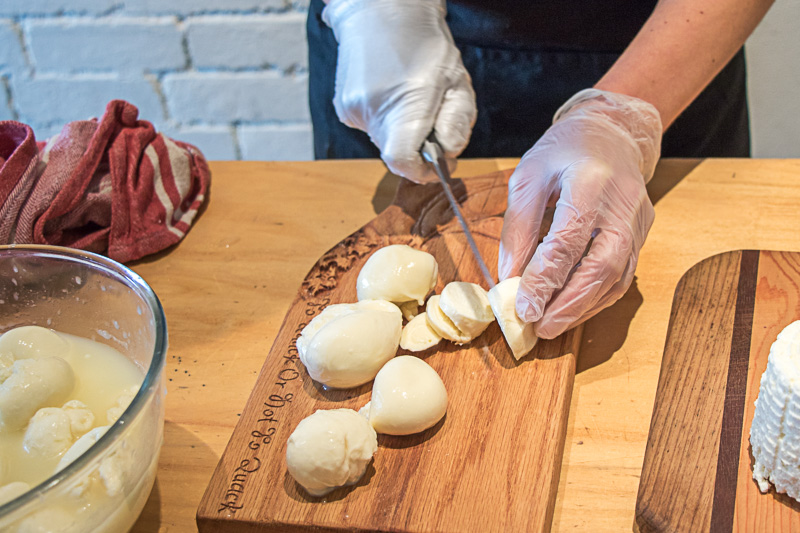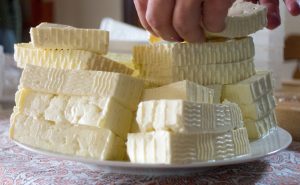Learn to make three versatile Mediterranean cheeses with Jacqueline Bender, Bee Sustainable’s artisanal cheesemaker and educator.
What you will learn:
- The fundamentals of fermenting milk
- Coagulating milk using starter cultures and rennet
- Cutting, draining and moulding curds
- How to brine and correctly store your cheese
Join Jacqueline for an informative and tasty workshop. She will guide you through all the steps necessary to make feta, halloumi and whey ricotta from scratch.
We will use biodynamic cow’s milk (or organic if unavailable) purchased from our local organics store. No need to keep a house cow to make these cheeses, anyone can make them with quality purchased milk.
This class is a mix of theory and practical, as Jacqueline explains the chemical reactions that are taking place before your eyes. At the conclusion, we will taste the halloumi and ricotta made during class and some feta that Jacqueline has prepared earlier (as it takes several days to mature the cheese).
This workshop includes a 20% discount on any kit or cheese making equipment that you would like to purchase on the day.
The workshop will include:
- Recipes and the essential techniques of cheesemaking
- A tasting of the cheeses made – a small cheese party
- Notes about the major steps of cheesemaking and resources for quality milk and supplies
- A 20% discount on cheesemaking kits and equipment purchased in conjunction with the workshop
Jacqueline Bender has been educating cheesemakers for 6 years. She has lived and worked on farms in Victoria where she ran a herd of dairy goats and was responsible for the farm’s weekly cheesemaking. Fresh goat’s cheese such as feta, halloumi and chevre were the farm’s speciality. She also makes alpine-style hard cheeses and mould-ripened stinky cheeses from cow’s milk. Cheesemaking is an integral part of her self-sufficient lifestyle, which includes keeping bees, chickens and small-goods processing.

 500 Lygon Street, Brunswick East, Victoria 3057
500 Lygon Street, Brunswick East, Victoria 3057 03 9939 7301
03 9939 7301 Email Us
Email Us



